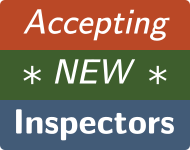
|
|||
|
|
Hiring a Home InspectorWhy a Home Inspection?A home inspection is an objective visual analysis of a homes structure and systems. An inspection will determine the areas of a home that are not performing properly, items that are beyond their useful life or are unsafe. Inspections will include areas of the homes interior and exterior from the roof to the foundation and the exterior drainage and retaining walls. If problems or symptoms are found the inspector may recommend further evaluation. A home inspection is a visual inspection to determine problems or conditions that exist at the time of the inspection. The purchase of a home is one of the largest investments you will make. It is important that you know as much as possible about this purchases. A home inspector is trained to be able to evaluate the home in detail and give you a report that will allow you to make a good decision about purchasing the home. An inspection report will describe the home in detail and will highlight the areas that are concerns. Home inspections are a good idea even if you are already a homeowner. We all get physical checkups - why not give your home a checkup. Many homeowners are living in homes that have serious problems that if identified early can save considerable repair costs. Water leaks can cause serious and costly problems but if they are caught early can be repaired at little cost. A home inspection will also give you an outline of the routine maintenance that needs to be done to the home. How to Find a Home Inspector?
Experience:
Liability Insurance: What does a home inspection include? The home inspector's report will review the condition of the home's heating system, plumbing, electrical system and central air conditioning system (temperature permitting), as well as the roof, attic, visible insulation, walls, ceilings, floors, windows, doors, foundation, basement, landscaping, and visible structure. What does a home inspection cost? Each home inspection company has their own pricing structure. Inspection fees vary based on the area of the country and the type of home or building, the size of the home and the features of the home. Most inspectors will charge extra for additional services such as radon testing, termite inspections, well and septic inspections etc.. The cost of the inspection should not be a consideration for hiring an inspector. A good inspection that informs you of all the potential problems in a home is worth the money. A bargain inspector may give you an inferior report. Generally, you get what you pay for and there is no reason to take chances on such a large investment. Once you have purchased the home it may be very costly to repair problems that were omitted from an inferior inspection report. Do it yourself? Most home buyers will look at a home that they want to purchase and look for reasons to purchase the home. The prospective home buyer is not able to look at the home with the unbiased critical eye that a home inspector will. Even a home buyer with construction experience does not have the knowledge and experience that a home inspector has. A good inspector is trained and experienced in finding the clues in a home that indicate problems. These clues are sometimes very subtle and hard to find. Most inspectors have performed hundreds of inspections and they are familiar with problems with certain building materials or building styles. When should I do a home inspection? When purchasing a home you will want to have the home inspected within a few days after the purchase agreement is signed. You will want to make sure you have a clause in your purchase agreement that allows you to have an inspection and that you have the right to terminate the agreement if you find the home in unsatisfactory condition. This clause should specify the terms to which both the buyer and seller are obligated. During the Inspection? We recommend that you are present at the inspection. Most inspectors will allow you to be there and ask questions after the inspection is completed. Most inspectors will point out the area that are potential problems. This is important because you will be able to see for yourself the extent of problems that is sometimes hard for an inspector to convey in a report. Most inspectors will also show you how the heating system works and show you what things will need to be maintained in order to keep the home in good condition. What about the problems found? Almost all homes will show problems. Even new construction homes will have problems noted on an inspection report. This is why we recommend an inspection even for new construction. Your inspector will be able to identify major problems that will be costly. Minor problems are to be expected and can be repaired after closing. Major problems may require a negotiation between you and the seller as to how to fix the problems. A seller may adjust the purchase price or contract terms if major problems are found. If the problems are costly you will be able to make your decision about purchasing the home with the proper knowledge about the future cost of that home. |

|
|
|
|
|||






